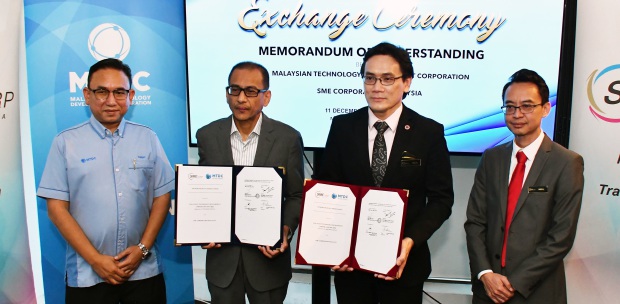KUALA LUMPUR: The government should take immediate steps to save local small medium enterprises (SMEs) with the implementation of firmer policy interventions to facilitate economic recovery to pre-pandemic levels.
Small and Medium Enterprises Association of Malaysia (Samenta) chairman Datuk William Ng said some of the low-hanging fruits that can be implemented included to immediately halt the increment in electricity bills.
"It is untenable to add this unnecessary costs pressure to our SMEs when Tenaga Nasional Bhd achieved a record 9.6 per cent revenue growth in the first nine months of 2021.
"The government should also consider re-introducing the subsidy to commercial and industrial users," he said in a statement yesterday.
Ng said the recent announcement by the Human Resources Ministry of a proposed increment of minimum wage to 'around RM 1,500' has been received by Samenta's members with disbelief.
"Allow the market to dictate wages. While Samenta does not object to any increment in wages, it is best left to the market to dictate wages for various industries and job roles."
He said wages should be tied to productivity and output, citing that a forced increment at this fragile stage of the economy would send a mixed signal to SMEs.
He added that any effort at recovery would dampen costs pressure on consumers, rather than in saving local SMEs and to catch up on lost growth.
"As it is, most businesses are already paying above RM1,500 to local workers, so an increment in minimum wage is unnecessary and is counter-productive."
Ng urged the government to speed up the transition to market-led financing as banks were tied down by rules set by Bank Negara Malaysia.
"While Bank Negara has been pro-active in supporting SMEs, we need the government to step in to take on more risks to allow more businesses to obtain financing through various sources.
"Our traditional reliance on collateral, rather than revenue or cash flow, is hampering growth at a time when SMEs are ready to grow but has exhausted their cash flow and disposed off some assets to weather the pandemic."
Ng said the government should also re-open the borders immediately although the National Recovery Council had proposed the re-opening of the country's borders by March 1 to fully-vaccinated
Samenta has also called on the government to prioritise the survival of local SMEs in the coming months as the country goes through a steep and difficult recovery.
"We are facing a triple whammy of rising costs, labour challenges and an unstable political environment. Until and unless these are resolved or substantially mitigated, any hope of a full recovery to pre-pandemic level is an unrealistic illusion."
Ng said the government must be realistic in trying to implement adjustments that would affect the SMEs.
Samenta called for the declaration of an endemic stage as soon as feasible to allow Malaysians and local businesses to resume some semblance of normalcy.
"Consumer confidence remain highly subdued, and the only forward for a quick economic recovery is for Malaysians to accept that the virus is here to stay, and to continue practicing safety and hygiene measures in daily lives," Ng said.






